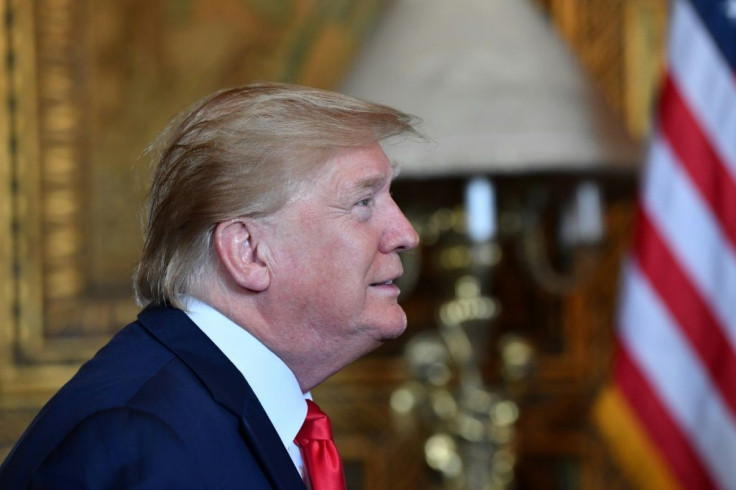Trump Impeachment: White House Official Confirms Trump Ordered To Withhold Ukraine Aid, Unredacted Data Reveals

KEY POINTS
- Unredacted documents confirm it was Trump that froze military aid for Ukraine
- They show the White House's public excuse for holding the funds (a policy review) is questionnable
- Documents show Trump froze the funds because he wanted Ukrainian president Volodymyr Zelensky to launch a corruption investigation into Joe Biden
New evidence for the first time confirms it was indeed president Donald Trump that directly ordered the withholding of $391 million in Congressionally-mandated military aid for Ukraine.
Unredacted documents obtained by the national security online forum, Just Security, reveal explosive details of events that prove Trump's direct hand in refusing Ukraine military aid in exchange for its president, Volodymyr Zelensky, launching a corruption investigation into former vice president Joe Biden.
“Clear direction from POTUS to continue to hold," wrote Michael Duffey, associate director of national security programs at the Office of Management and Budget (OMB), to Elaine McCusker, acting Pentagon comptroller, in an Aug. 30 email, according to unredacted documents viewed by Just Security. The organization said this remark was in one of many documents the Trump administration has tried to keep from the public despite congressional oversight efforts and court orders in Freedom of Information Act (FOIA) lawsuits.
The documents confirm that hours after Trump's July 25 call with Zelensky, during which he asked the latter to investigate Biden, Duffey immediately sent an email to top senior defense officials advising the Pentagon to suspend any future military aid for Ukraine.
“Based on guidance I have received and in light of the Administration’s plan to review assistance to Ukraine, including the Ukraine Security Assistance Initiative, please hold off on any additional DOD obligations of these funds, pending direction from that process. I understand that DOD will continue its planning and casework during this period and that this brief pause in obligations will not preclude DOD’s timely execution of the final policy direction,” wrote Duffey.
"We intend to formalize the pause with an apportionment footnote to be provided later today. Given the sensitive nature of the request, I appreciate your keeping that information closely held to those who need to know to execute the direction. Please let me know if you have any questions.”
On August 6, Duffey emailed McCusker, telling her he planned to extend the hold on the Ukraine funding. Trump met with defense secretary Mark Esper and secretary of state Mike Pompeo earlier on Aug. 30 to discuss the president’s hold on the military assistance for Ukraine, which was now on its second month.
Ukrainian officials and Congressional lawmakers wanted to know what was going on with the delay in military funding. Trump’s national security team told Trump withholding the money was against U.S. national security interests, but Trump refused to listen to the argument and instead told OMB to keep withholding the funds.
Testimonies from several Trump administration officials during the impeachment inquiry from October to December confirm Trump wanted a commitment from Ukraine to investigate Joe Biden before releasing the funds. Ukraine refused.
Just Security said "no one else appears to have supported his (Trump's) position." It said the White House's pretext for withholding the funds was some sort of policy review was taking place. The unredacted emails, however, make no mention of that actually happening. What it shows are Pentagon and OMB officials anxiously waiting for Trump to change his mind.
Trump finally released the money on September 11. This was a month after the whistleblower filed his complaint with the State Department on August 12, and just before media broke open the whistleblower complaint to the public.
The unredacted documents also show McCusker sent an email to OMB officials on Aug. 9. In this email she said: "As we discussed, as of 12 AUG I don't think we can agree that the pause 'will not preclude timely execution.' We hope it won't and will do all we can to execute once the policy decision is made, but can no longer make that declarative statement."
In a September 9 email to McCusker, Duffey suggested the Pentagon, not the OMB, would be to blame if the money was not spent.
"If you are unable to obligate the funds, it will have been DoD's decision that cause any impoundment of funds," he wrote.
To which McCusker replied, "You can't be serious. I am speechless."
© Copyright IBTimes 2024. All rights reserved.





















